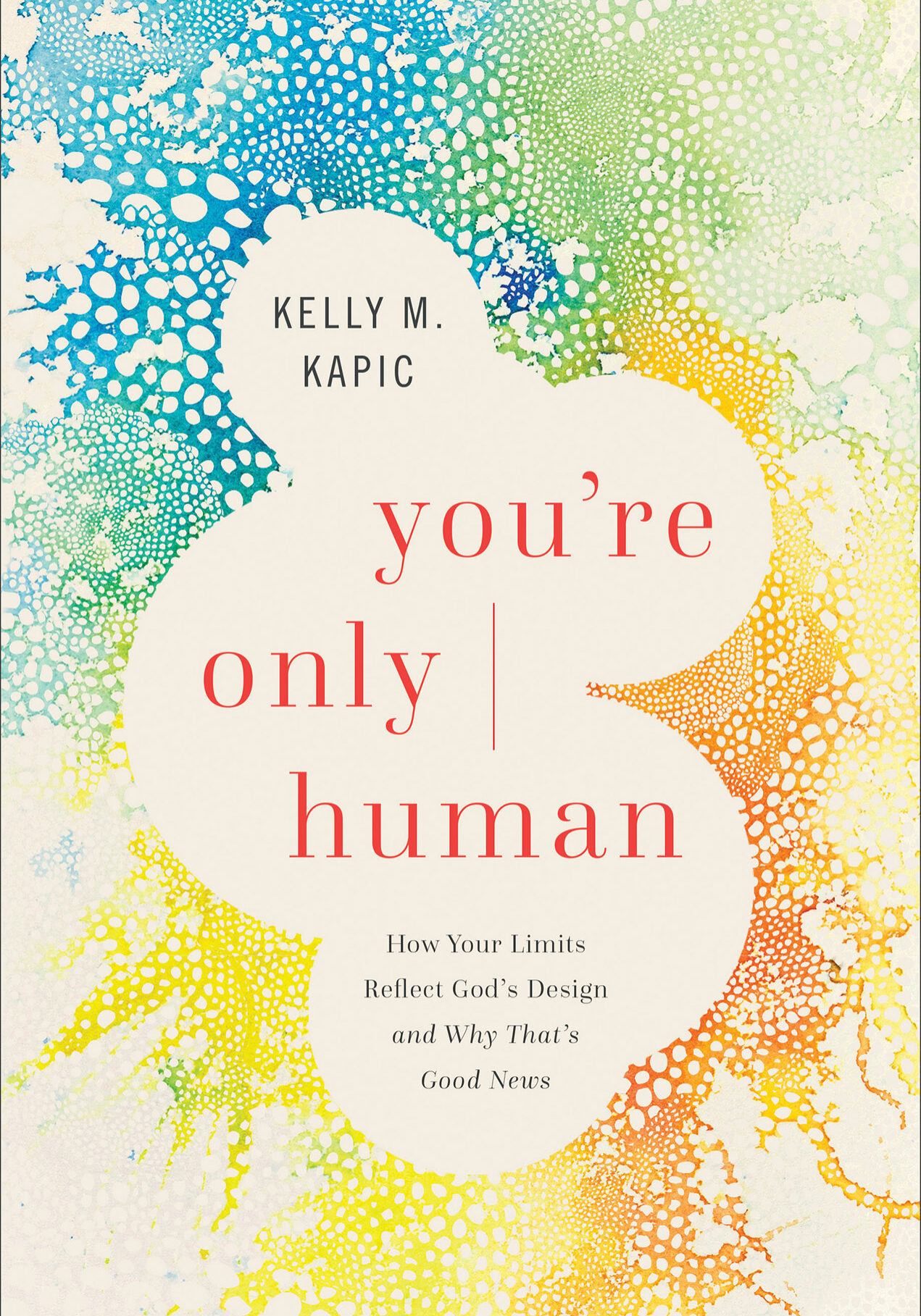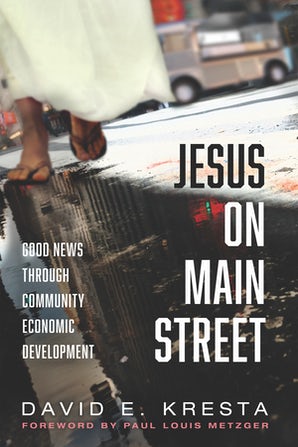
As I write this, my body is growing a baby. There’s a lot of joy and wonder in this process, but the process is also complicated. Though I wholeheartedly rejoice in the gift of life, I’ve never loved experiencing the physical changes that come with pregnancy. The fatigue, weight gain, limits on activities, and dietary changes always feel constraining. And I don’t like being constrained. Then there are the comments from friends and strangers alike who generally mean well but can test my patience. Every time someone asks whether I, a mother of all boys, hope to finally get my girl, it sets my teeth on edge.
It’s providential that early in this pregnancy I picked up Kelly Kapic’s latest book You’re Only Human: How Your Limits Reflect God’s Design and Why That’s Good News, released last month by Brazos. Kapic, a professor of theological studies at Covenant College, wants readers to understand that our inability to accomplish everything we feel we should is not a time-management problem, but a pastoral and theological concern.
Kapic sees our creaturely finitude as a good aspect of our humanity, not a product of our sinfulness. In You’re Only Human, he helps Christians think about how their limits can draw them into deeper community with God and other people.
You’re Only Human resembles other recent books on limits, notably O. Alan Noble’s You Are Not Your Own: Belonging to God in an Inhuman World and Ashley Hales’s A Spacious Life: Trading Hustle and Hurry for the Goodness of Limits. But while Noble’s work leans toward the philosophical and Hales’s writing is intensely practical, Kapic considers human finitude from a theological perspective. Kapic’s writing is accessible to anyone, but I think the book will particularly benefit pastors looking for guidance in addressing these concerns in their congregations.
Limits and Our Bodies
Kapic begins his exploration of limits by discussing our particularity and the particularity of the body. He asserts that God loves, and even likes, us as particular humans with our unique abilities, gifts, and bodies:
“Part of being human is being limited by having a body. The incarnation — the Son of God taking on human flesh — is God’s great yes to his creation in general, and to finite human creatures in particular.”
Harkening back to second-century Christendom, Kapic explains the debate over how Christians should think of Christ’s humanity and physicality. While Marcion believed Jesus could not have possibly had a physical birth (because the physical world is evil), Tertullian and Irenaeus defended and celebrated Jesus’s humanity and physical birth. Our bodies are good, and in Jesus, we see “the divine embrace of creation,” Kapic writes.
Kapic then spends a chapter exploring physical touch, trauma, and embodied worship. Belonging in a physical world requires physical touch, and not just sexual touch. While protecting people from physical and sexual abuse, Christians must learn to serve the body of Christ and worship its head through physical touch, physical presence, and embodied worship.
Humility and Limits
While many pastors and theologians in Kapic’s Reformed tradition tend to begin discussions of humility with the understanding of man’s sinfulness, Kapic takes a different approach.
“Instead of starting with sin, we must ground our theology of humility in the goodness of creation. Humility is a distinctly biblical virtue because it begins with the knowledge that there is a good Creator Lord and we are the finite creatures he made to live in fellowship with him.”
If you read the most recent article I wrote for Common Good, this concept is familiar. This is where Kapic offers his most refreshing perspective in the book. Because God created us with limits, we can welcome and celebrate the opinions, perspectives, and experiences of others. The implications for how this can strengthen bonds in the church and workplace are thrilling. How might church disagreements look different if the church leadership actively sought out the opinions of others, rather than acting as though the pastors had all the answers? What if Christian coworkers and managers welcomed more stakeholders into the decision-making process? What if school administrators and school boards actively listened to students and parents before making decisions? How might our evangelism efforts look different if we asked more questions of those we wanted to reach?
Rather than limiting us, Kapic’s view of humility frees Christians to stop pretending they have all the answers, embrace their limits, and treat the experiences of others with intellectual hospitality.
four Practices for Creatures and the Resulting Love
Kapic spends three chapters exploring our relationship to time and the joy of practicing presence with God and presence with others, the good process that God undertakes to change us (rather than instantly taking away our indwelling sin), and why the church needs all believers in order to be the body of Christ. He concludes the book with four practical ways we can live faithfully within our finitude.
- Embrace the rhythms and seasons of life.
Finitude calls us to understand we can’t have it all and have it all right now. There are some seasons of life where good things we want might be unrealistic. It would be wiser to make our to-do lists shorter and see what the Lord does.
- Recognize vulnerability.
“I believe that recognizing one’s vulnerability before God and others is fundamental to a Christian understanding of being human. Although the word is absent from the Bible, both testaments affirm that we are, in fact, vulnerable to failure, external attack, and internal weaknesses,” Kapic writes.By vulnerability, Kapic doesn’t mean fragile and in need of overprotection; rather, Kapic connects vulnerability to each person’s limits, appreciating the giftings and strengths in others: If I know I am weak and prone to mistakes, I’m grateful for your counsel and perspective. When I admit I ought not carry anything over 25 pounds, I welcome assistance in stowing my luggage on an airplane.
- Express lament and cultivate gratitude.
This leads to Kapic’s third practice for faithful living: cultivating gratitude and expressing lament. Not one or the other, but both. They are two sides to the same coin pointing toward the reality of our dependence on a God who rescues us.
- Rest — honor sleep and sabbath.
Here, Kapic moves beyond tips for a good night’s sleep and examines the theological significance of sleep. That humans sleep is yet another reminder that humans are creatures — not the Creator, who neither slumbers nor sleeps. It’s a daily reminder of our dependence on the Creator to guard and keep us. In the same way, a weekly Sabbath, a break from our labors, reminds us who ultimately causes our labors to succeed.
Kapic has said that his test of true spirituality is if it works for both the materially poor and the parent of a newborn. So as the soon-to-be mother of a newborn, I experience — and will continue to experience — constraints on my time, my body, my sleep patterns, and my productivity. But the result is love for a new child who both disrupts our family community and adds to it. It’s also an opportunity to depend on my friends and church community as they serve my family and share in our joy (even when I hear “Are you hoping for your girl?” for the hundredth time).
You’re Only Human offers great wisdom and can help anyone casting about for language to articulate why life’s rat race wears us down and why the Christian life of dependence and limits is a better way.





